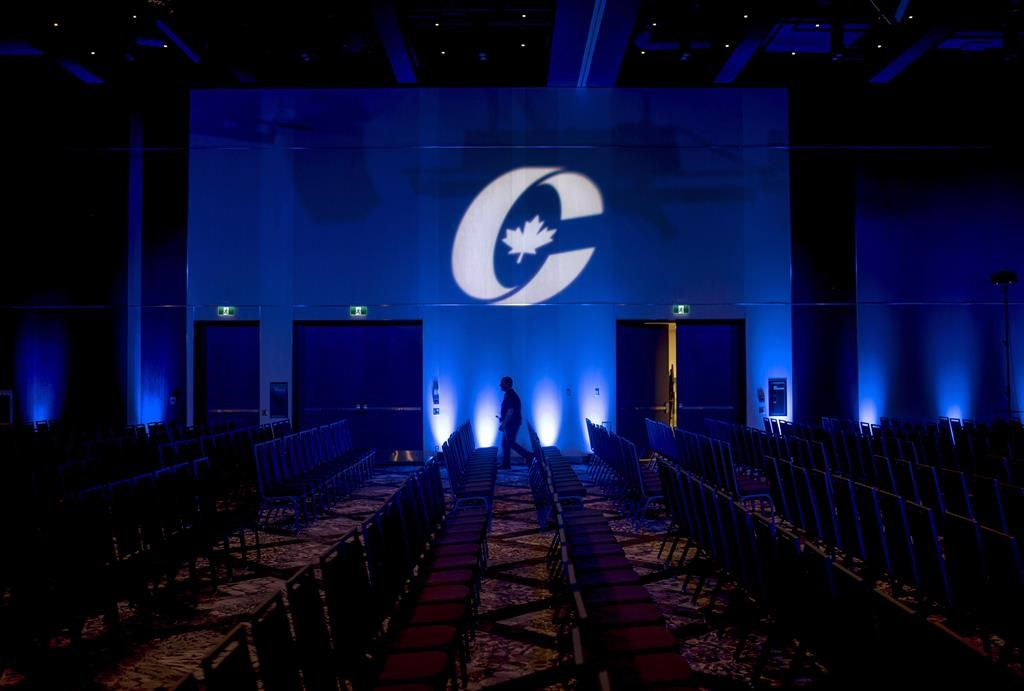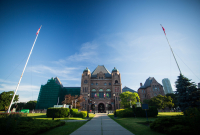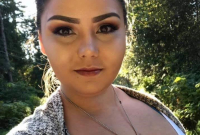Support strong Canadian climate journalism for 2025
Conservative prime minister Stephen Harper was particular about beginning nearly all of his remarks in French.
It was a tactic understood to underscore his party's commitment to Quebec throughout the Conservatives' ongoing struggles to gain a lasting political foothold in that province.
As the Conservatives seek, once again, to find a replacement for Harper, it could be seen as a nod to his seemingly permanent stamp on the party that the first of two back-to-back debates in the ongoing leadership race is being held in French.
The decision, however, isn't about nostalgia.
None of the four candidates — Leslyn Lewis, Peter MacKay, Erin O'Toole and Derek Sloan — are fluently bilingual. The party decided to schedule the first debate, taking place Wednesday night, in French. That gives candidates more time to prepare, rather than having the English one first and then only a few hours to get their French functional.
This debate will be followed by another one Thursday in English, both taking place in downtown Toronto and livestreamed online.
All of the questions for the event were submitted by party members via video.
The back-to-back scheduling is one of many concessions the party has had to make in a race upended repeatedly by the COVID-19 pandemic.
The debates were initially expected a few weeks apart, one in Toronto, and another in Quebec.
But when COVID-19 began to shut down the country in March, that plan was scuttled, as well as all the others for the campaign.
The original date of June 27 to pick a new leader has now been pushed to sometime after Aug. 21 — the deadline for party members to have their ballots sent to headquarters for counting.
The party has always used mail-in ballots, but their complete reliance on them for this election speaks to the remote nature of nearly the entire campaign. Wednesday is the first time all four competitors will appear together, allowing party members to compare them directly.
Due to physical distancing requirements in place to slow the spread of the novel coronavirus, the candidates have been confined mostly to a digital campaign trail.
All have used all manner of technologies to connect: Facebook live events, online videos, telephone townhalls and robocalls.
None come without hiccups. It was recently revealed that O'Toole was using an American call centre to make calls for his campaign, despite a pledge to stand up for Canadian workers.
Not even a day later — and after insisting no Americans were involved in its campaign — the MacKay team sent out robocalls using a U.S. number. The campaign blamed an app that randomly generates numbers and say it was Canadians who sent the messages.
It was another misstep for a candidate who will be under intense scrutiny Wednesday night for how well he can manage in French. Early mistakes from his campaign saw him mocked on the front pages of Quebec papers.
MacKay tried to bolster his Quebec cred this week by posting a class photo of sorts showcasing all the endorsements he has in the province, and buying French-language ads on social media, including one asking people to take a survey.
The questions were all common bread-and-butter themes: the carbon tax, media bailouts, security at the border, standard fare for most of the candidates as they seek to woo the grassroots.
Lewis, the lone non-politician among the candidates, has also used a good chunk of her campaign trodding familiar themes.
But lately, there's been a shift.
Initially, Lewis had sidestepped using her background — she emigrated to Canada from Jamaica as child — as a talking point.
But as a national debate has begun to rage over systemic racism and the relationships between Black communities and police, her campaign has pivoted to tackle questions around the Black Lives Matter movement, calls to defund police and the barriers that she's had thrown up in front of her as a Black woman.
"Despite everyone's talk about inclusivity, the narrative is constantly brought up that you can't look or act or seem different in any way or Canadians just won't vote for you," Lewis said in a recent letter to supporters.
"I've never believed that is true, and I wanted to prove them wrong once and for all."
Wednesday night will be her national debut on the party stage and a goal for her campaign is to give further fuel to the momentum she appears to be gaining.
While in the early days her support was emanating largely from social conservatives — she is clear on her anti-abortion position, for example — comments to her social media pages illustrate a change underway.
"When I bought my membership I had intentions of voting for O'Toole but it's looking like he is now my second choice after Dr. Lewis. I would love to have her as our next PM," wrote a supporter named Jason Flamand on her page.
O'Toole has run a campaign partially aimed at being a number 2, or even number 3, choice of party members who have made social conservative positions their ballot-box question.
In a recent meeting he had with Quebec conservatives, a video of which was leaked to the CBC, he made the request explicit:
"If you vote for Leslyn (Lewis) or Derek (Sloan) as your first choice, I would like to receive your second position, second vote. Please."
The party uses a ranked ballot, and members pick candidates in order of preference. When it comes time to count, if a candidate does not receive 50 per cent plus one in the first round, they drop off and a voter's second choice is then counted.
Sloan, a rookie MP from an Ontario riding, is also riding on social conservative coattails, but has taken more aggressive positions than Lewis. He found himself nearly booted out of his party's caucus over comments he made about the chief public health officer.
In recent days has been using his platforms to raise concerns about the COVID-19 vaccine and Canada-China relations.
This report by The Canadian Press was first published June 17, 2020.





Comments